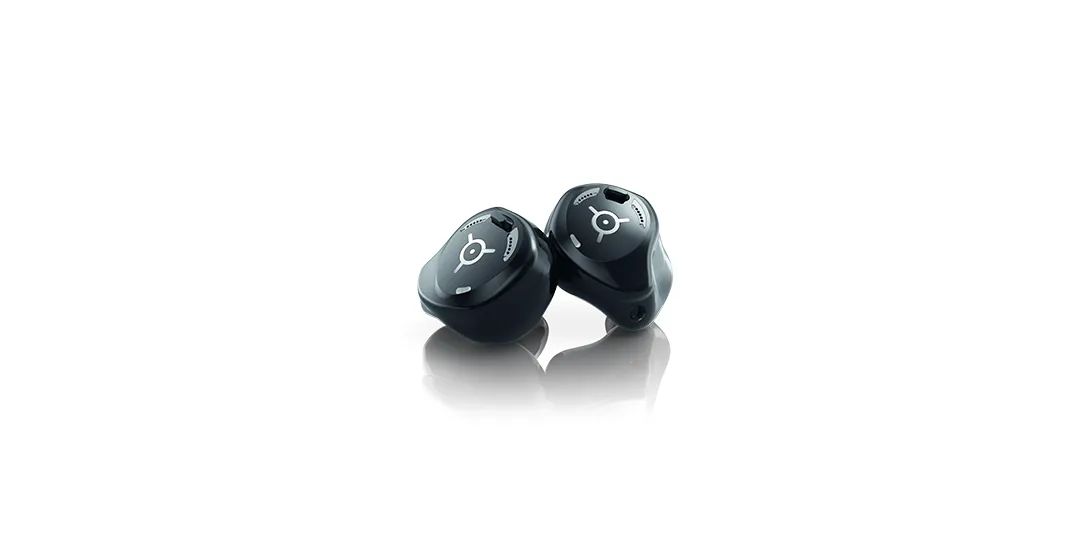Tinnitus – Treatment and prevention
Noise in the ear: What's next?
Occasionally hearing sounds such as buzzing or whistling in the ear can happen. Important: If the noise in your ear lasts longer than 24 hours, you should seek the advice of an ear nose and throat (ENT) doctor, and the sooner the better, so that they can identify and start you on the right treatment option in good time. This gives you the best chance of recovery. We have summarized the most important information on treating noise in the ear below.
For those affected by chronic tinnitus (symptoms persist for longer than twelve months), the situation is somewhat different and a full recovery is usually not possible, but there are treatment options.
If you are instead looking for general information on the causes of tinnitus, click below.

What will happen when I visit the doctor?
The first, detailed conversation (often referred to as taking medical history) between the patient affected and the ENT doctor or audiologist is a decisive factor in the diagnosis and treatment of noise in the ear. During this conversation, questions are asked about pre-existing conditions, possible triggers, and about the intrusive noise itself. The doctor will also try to assess the level of psychological strain caused by the tinnitus. You should be prepared to answer the following questions:
- Do you have any pre-existing conditions?
- Do you take any medication?
- When did the noise in your ear first start? Is there anything that may have caused it?
- Did the tinnitus begin suddenly or has it developed gradually?
- What does the tinnitus sound like?
- Was there a potential trigger, such as acoustic trauma, continuous noise, or an unusually stressful situation?
The doctor will then carry out various auditory tests, including a hearing test and a balance test. The ENT doctor can then ascertain whether you also have hearing loss or a disorder of the auditory system.
Lastly, the actual tinnitus analysis is carried out, in which the volume and pitch of the noise in your ear is determined. By doing this, the doctor can find out which frequencies the noise covers, and how it can be treated.
What types of tinnitus treatment are there?
Tips for dealing with tinnitus
- Reduce stress and find a relaxation technique that suits you (autogenic training, yoga, tai chi, etc.).
- Stop smoking, as nicotine promotes tinnitus.
- Watch what you eat. And also, alcohol should only be consumed in moderation.
- Lead an active lifestyle and exercise. Physical activity helps to reduce stress and distracts you from the noises in your ear.
- Get enough sleep. Well-rested people perceive chronic tinnitus less intensely.
- Choose activities that you enjoy. This distracts you from the noises in your ear.
- Always wear hearing protection when you are exposed to noise or loud music.
How can tinnitus be prevented?
Tips for preventing chronic and acute noises in the ear:
- Avoid the causes and protect your ears: Avoid excessive noise. Protect your ears if you can’t avoid certain sources of noise at your workplace or in your free time. Use earplugs or special headphones.
- Avoid excessive stress: this is because stress promotes the development of unpleasant noises in the ear. It’s better to take things down a gear than to completely break down one day.
- Don’t hesitate! Go straight to your doctor at the first signs of tinnitus or when it’s acute, because the earlier you seek advice from an ENT doctor or an audiologist when you first hear noises in your ear and are treated with a suitable therapy, the better your chances of recovery.
Other Topics
VAC, WCB, WSIB, WorkSafeBC, ADP & ODSP accepted. *Hearing evaluations/tests are free for customers over the age of 18. Fees may apply where specific testing for employment purposes, reports, a copy of your results or the completion of an application is required. See clinic for full details.




.png?branch=web_prod)
